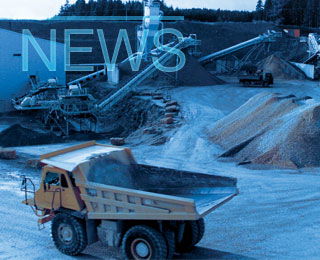Fitch Ratings has assigned Central Asia Cement (CAC) a National Long-Term Rating of 'BB-(kaz)' with a Stable Outlook.
The agency has also assigned the prospective 2.5 billion tenge notes to be issued by the company and guaranteed by its parent company Steppe Cement Ltd and by the affiliated company Karcement an expected rating of 'B(kaz)(EXP)'. The final rating is contingent on the receipt of final documents conforming to information already received.
"The rating reflects CAC's solid competitive position, but also its high operational risk, as the company operates one single plant in the highly volatile Kazakhstan cement market, with no geographical and/or product diversification," Fitch said.
The Stable Outlook reflects Fitch expectation that the group will be able to invest in the refurbishment of its cement production Line 5 maintaining a solid financial profile in the next three years (funds from operations gross leverage constantly below 3.0x).
Fitch assigned the rating to CAC on the basis of the credit profile and the consolidated figures of the whole Steppe Cement group, as this is considered the most meaningful economic entity in view of both the strong operational ties between Steppe Cement, and its 100 percent controlled subsidiaries CAC and Karcement and the cross guarantees on the respective debts.
Steppe Cement is the leader in the Kazakh cement market with a market share of some 20 per cent. Its plant has been partially renovated to the more efficient dry technology and is well located (close to the main end-markets and with access to transportation facilities and to coal and raw material sources), thus giving Steppe Cement a cost advantage over its competitors.
The long-term prospects of Kazakh cement market are positive, backed by solid GDP growth in Kazakhstan, strong potential for residential demand and by upgrades in infrastructure. However, cement prices have historically been extremely volatile and Fitch considers strong price pressure to be a major risk, given that a number of new cement plant projects have been announced in the region.
"If completed, these new plants would cause Kazakh production capacity to largely exceed internal demand in the next years, notwithstanding the expected 6-8 per cent annual volume growth. The demand/supply imbalance could cause pressure on prices and on industry margins, although the increased competitive pressure should mainly affect the less efficient producers," Fitch said.
The lack of geographical diversification and the fact that Steppe Cement, through its two operating subsidiaries CAC and Karcement, owns and operates one single cement production plant expose the group to high operational risk.
Steppe Cement plans to complete the refurbishment of its cement production Line 5 with an investment of US$34m (US$en71m has been already spent in the project financed mainly by secured bank facilities from EBRD and HSBC). The new line will allow Steppe Cement to exploit the expected cement demand growth and to improve its cost base by substituting the production of some old and less efficient lines.
